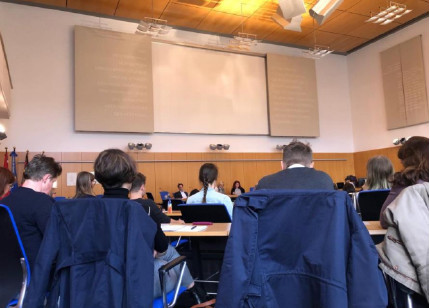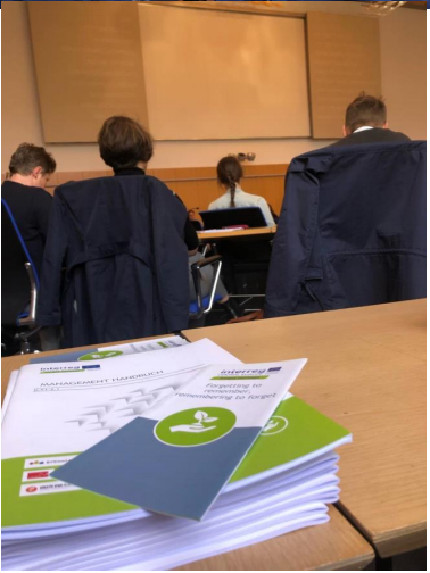The future of Forget Heritage in Nuremberg
- At May 10th, the FORGET HERITAGE team from Nuremberg joined the municipal council meeting to present the work on the PWA “OffSpaces”, to find a way for future administration after the Forget Heritage period and to promote the idea to create a coordiation office for cultural enabling spaces. The municipal council agreed, but decided that until 2021, there is no household money for that issue. But the discussion to find a financing strategy earlier than 2021 is ongoing. The situation is positive, because in Summer 2017 the City of Nuremberg launched the development of a long-term cultural policy strategy and plan. This plan is both an essential element of the application process for the European Capital of Culture title in 2025 and an important step in the cultural development of Nuremberg itself. The plan reaches beyond the year 2025 and must be feasible to implement, whether or not Nuremberg receives the title.
- This planning process has opened up new perspectives and opportunities for obtaining arts and culture a central place in the urban development of Nuremberg.
- Nuremberg has a history of responding flexibly and openly to social change and supporting cultural transformation processes. However, local culture is changing rapidly, especially through digitization and in-migration to Nuremberg. This plan seeks to utilize these cultural changes for the greater good of Nuremberg.
- Council proposal aspects:
- For 2019, two Focal Points in The implementation of the Cultural Strategy will be at the Forefront: In Addition to the launch measure "1: Intensification of Cultural-political Discourse," the Focus is on launch measures "4: Initiating a management (office or agency) for cultural enabling spaces" (See Cultural Strategy, P. 15).
- Various possible Cooperation partners have been defined and contacted by the Cultural Department, model projects have been initiated and a Concept for The Use of Vacancies has been promoted. The focus was on existing Structures. The Department for Culture and Leisure with it ́s Forget Heritage partnership is one of them. The Goal: Creating a "competence unit for space madiation". In the App "OffSpaces" as well as in the project of the NGO Quellkollektiv e.V. on vacancy use, which is funded by the Cultural Department, the Culture Department sees an appropriate basis for the identification and mediation of spaces for cultural intermediate use. In many German cities, such as Munich, this task is fulfilled by a separate office. Due to the specific foundations given in Nuremberg due to the decentrality of the Nuremberg cultural landscape and the expertise available in many places, the culture unit recommends the development of a concept for the establishment of a “competence unit for space mediation" based on existing approaches and urban characteristics. The app "OffSpaces" can serve as a starting point for the development of such a concept as well as a platform for this competence Unit and can already be used technically.
With the app, vacant buildings and areas eligible for cultural use can be proposed by citizens themselves. The development or commissioning of the development was the task of KUF as part of the Forget Heritage project. The app "OffSpaces" could contribute to the creation of cultural enabling spaces in the sense of cultural strategy or vacancy management in Nuremberg if appropriate resources are made available for this purpose. Until now, neither in the context of the Forget Heritage project, which runs until November 2019, nor in the regular operation of the KUF are resources available for the operation and administration of the app. When developing such a sustainable Concept, a "Nuremberg Way" of vacancy management for cultural spaces, the following aspects should be considered:
- Considering the decentralization of the Nuremberg cultural landscape
- Take into account the different needs of artists from different art sectors, actors in the cultural and creative industries, as well as (socio-based) cultural initiatives, associations and other actors
- developing a sustainable concept of identifying and communicating spaces based on the "Engagement of Many" and thus raising awareness of the enrichment of the whole city through art and culture
- fluent concept development based on model projects with local partners of the city administration and the free scene as well as with property owners
- to pool existing experiences, needs and approaches from city administration, free scene and other areas, and to transfer them (also with the help of external expertise) into a practical and long-term effective concept
- Develop sustainable structures to implement such a concept, in particular for the long- term

